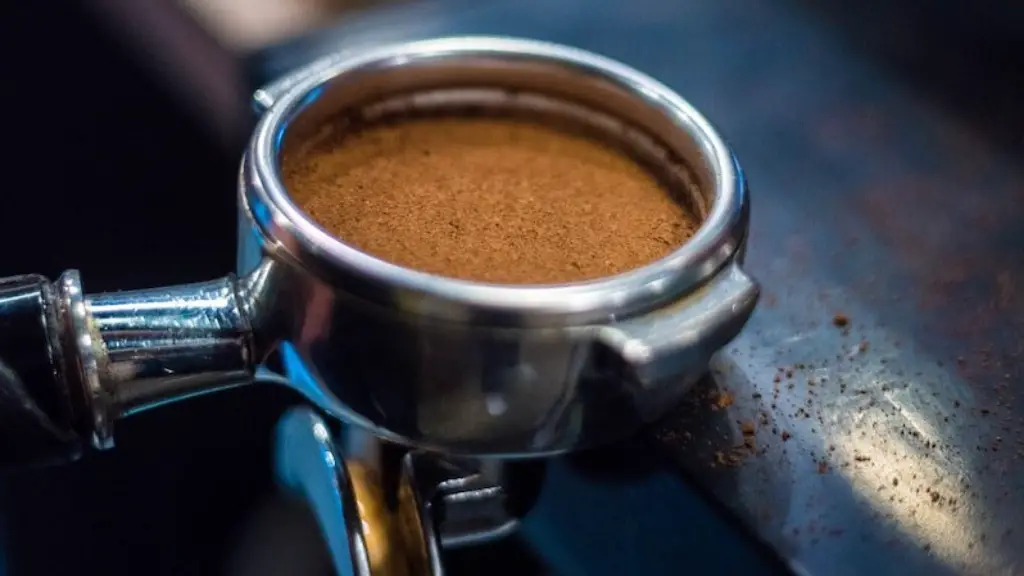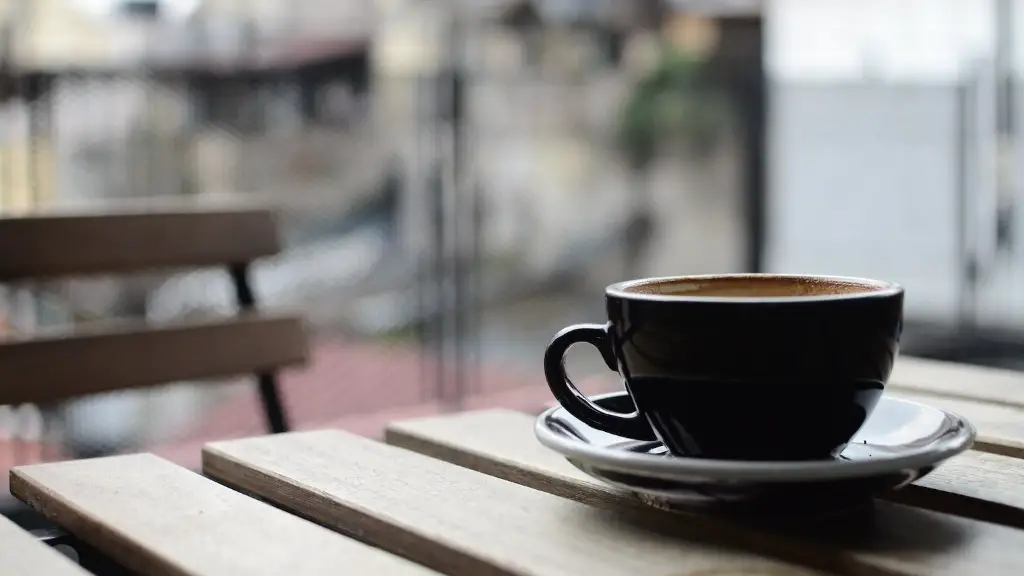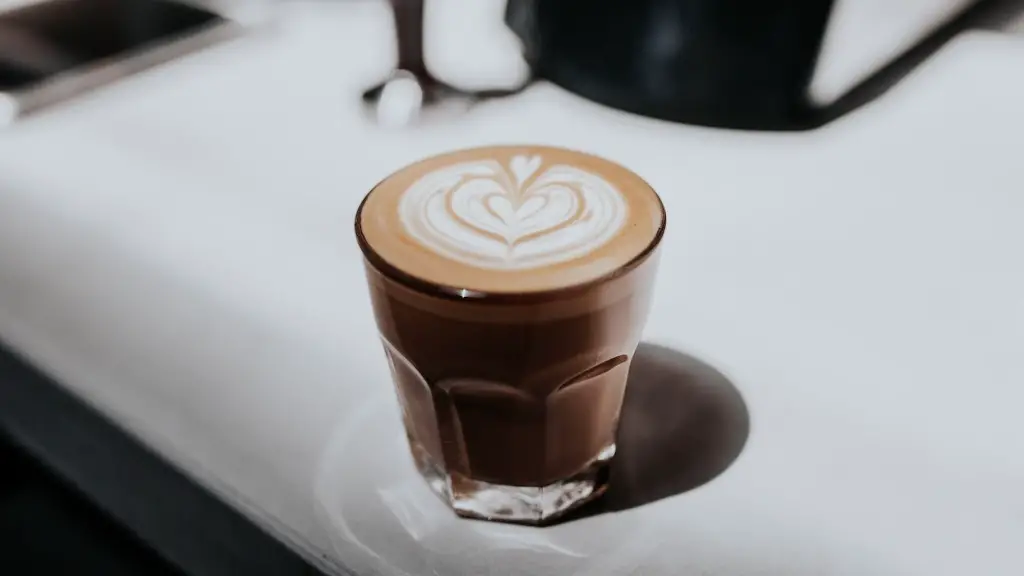The debate over whether coffee is more effective than energy drinks is contentious. Does coffee offer superior energy-boosting benefits than commercially-available energy drinks? On the one hand, coffee is natural and contains antioxidants and compounds that may offer more significant energy gains than those found in energy drinks on the other. On the other hand, energy drinks contain stimulants, like caffeine and taurine, that can provide a more lasting energy boost than coffee.
Studies show that caffeine is the primary source of energy for both coffee and energy drinks. Generally, an 8-ounce cup of coffee has 95-200 milligrams of caffeine whereas an 8-ounce energy drink can contain up to 272 milligrams of caffeine. While this indicates that energy drinks may have more of a long-lasting impact, the difference may not be significant in the grand scheme of things, as the effect of the caffeine in both beverages may be the same once it metabolizes in the body.
In addition to the raw amount of caffeine present in both beverages, the levels of other compounds are different. For example, coffee has more antioxidant properties and other compounds that may result in a longer-lasting energy boost. Energy drinks, on the other hand, contain additional stimulants and taurine which may make the effects of the caffeine more potent. This is an important difference to consider when deciding which is better for boosting energy.
When it comes to safety, energy drinks may not be the best choice for some people. The American Heart Association warns against the use of energy drinks for those under the age of 18, and anyone with low blood pressure, heart rhythm problems, or a family history of sudden cardiac death. Furthermore, energy drinks can be high in sugar, which can compromise overall health.
That being said, some people may find coffee to be more energizing than energy drinks. Caffeine is a stimulant and can increase alertness and alertness. Caffeine in coffee can also provide an overall better mood, reduce the effects of physical and mental fatigue, and boost physical performance. In addition, coffee’s antioxidants may have additional long-term health benefits.
Ultimately, it is up to an individual to decide which is better—coffee or energy drinks—for boosting energy. While both may slightly differ in terms of the ingredients they contain, the primary source of energy—caffeine—will remain the same. Furthermore, it’s important to consider the potential health implications of consumption, as some people may be more sensitive to the effects of caffeine and other stimulants present in energy drinks.
Coffee and Caffeine Effects
If you decide that coffee is the better option to give you an energy boost, you may want to consider the effects that the caffeine in coffee has on your body. Caffeine has been linked to improved alertness, attention, and reaction time. In addition, research has discovered that caffeine may also help to improve physical and cognitive performance. Studies have found that caffeine can increase muscle strength, endurance, and reaction time.
Caffeine also has a mild diuretic effect, meaning it can increase the amount of urine produced. This can result in dehydration and should be considered when consuming coffee. It’s best to drink ample water throughout the day in order to hydrate properly.
Finally, although coffees antioxidants may offer some health benefits, it is important to note that too much caffeine can have a negative impact on the body, such as difficulty sleeping and increased heart rate. Therefore, it is best to consume coffee in moderation in order to avoid these negative effects.
Energy Drink Alternatives
If you’re looking for something other than coffee to give you an energy boost, there are many other alternatives. Natural forms of caffeine, such as green tea, matcha, and guarana, have been known to provide similar energy-boosting benefits as coffee and are often lower in calories than energy drinks. Other natural sources of energy, such as nuts, can provide sustained energy and do not have the potential side effects associated with caffeine.
In addition, there are many herbal supplements that can provide a natural energy boost. Ginseng, for example, has been known to increase energy levels and stamina. Ginkgo biloba has also been found to improve alertness, concentration, and memory. Ashwagandha, another herbal supplement, has been associated with improved energy and stamina as well.
Nutrition & Diet Considerations
In addition to choosing an energy-boosting beverage, it’s important to consider your diet and overall nutrition. Eating whole foods, such as fruits, vegetables, lean proteins, and healthy fats, can provide sustained energy and have a positive impact on your overall health. Eating regular, balanced meals can also help to provide sustained energy throughout the day.
It’s also important to drink plenty of water throughout the day to stay hydrated. Dehydration can lead to fatigue and lack of concentration, which can negatively impact your energy levels. Finally, regular physical exercise can help to boost energy, overall mood, and physical performance.
Managing Stress & Anxiety
If you’re looking for an energy boost, it’s important to take a step back and assess what could be causing the fatigue or low energy. Stress and anxiety can cause fatigue, lack of concentration, and difficulty sleeping, all of which can lead to a lack of energy. Therefore, it can be beneficial to practice relaxation and stress management techniques, such as mindfulness and deep breathing, to combat stress and anxiety.
In addition, getting adequate rest and sleep is paramount for sustaining energy levels. It can be helpful to establish regular sleep habits, such as avoiding looking at screens before bed and avoiding late night snacks and caffeine.
Medication Side Effects
Finally, it’s important to take into account any medications or supplements you’re taking that may be causing fatigue or low energy levels. Some medications and supplements may have side effects that can lead to fatigue and lack of energy. Talk to your doctor to discuss any potential side effects of medications or supplements you’re taking.
In conclusion, it is ultimately up to a person to decide which option is the best for them to give them an energy boost—coffee or energy drinks. Considerations should be made according to personal health, lifestyle, and dietary needs in order to determine the best energy-boosting beverage. Knowing how to manage stress and anxiety and get ample rest are also important for sustaining energy levels throughout the day.




